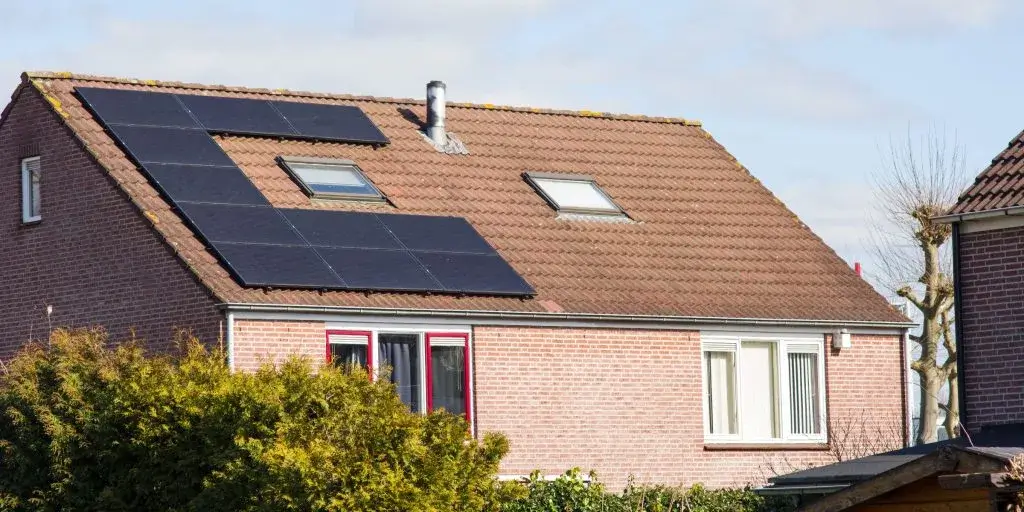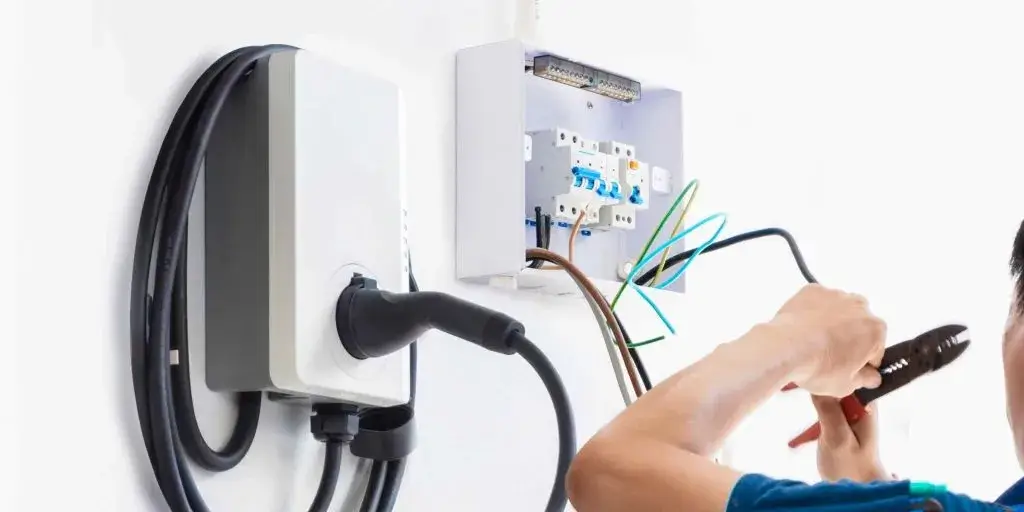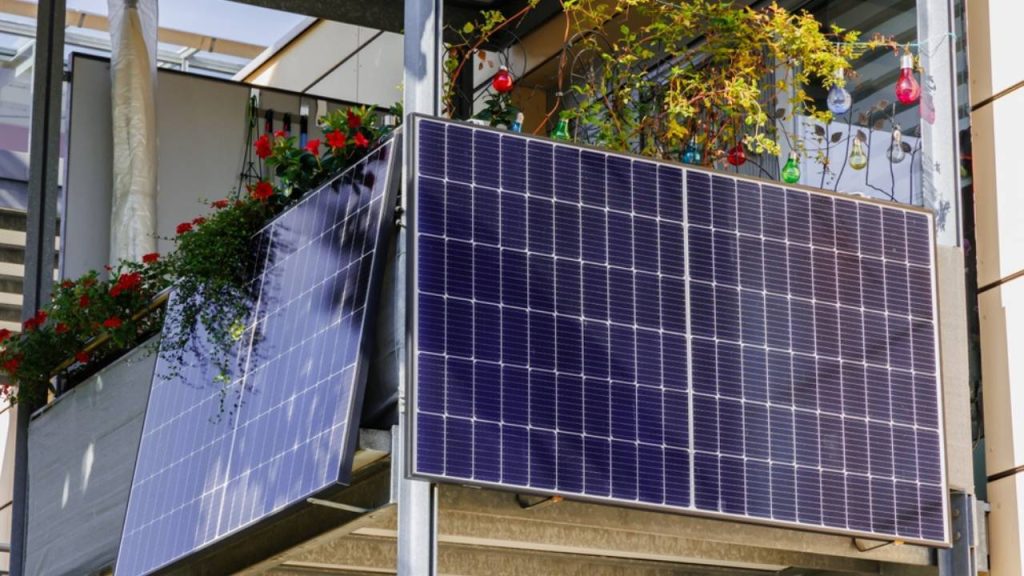Thinking about going solar? You might have come across the idea of plug-in solar panels being a quick and easy way to start generating your own electricity. They don’t require professional installation and simply plug into a wall socket, which makes them sound ideal, especially if you’re trying to keep costs down. But while they may seem like a clever shortcut, the truth is very different.
In this blog, why you should never invest in “Plug-In” solar panels, we’ll look at the real risks and drawbacks of using these systems in Ireland. From safety issues to poor savings and legal concerns, there are many reasons to avoid them.
What Are Plug-In Solar Panels?
Plug-in solar panels are small solar systems designed for quick, DIY-style use. They are often set up on balconies, in gardens, or even on boats and caravans. Unlike standard solar panels, which need professional installation and are wired into your home’s electricity supply, plug-in panels are simply mounted on a bracket and plugged into a regular wall socket.
They may look like a smart shortcut to going solar. However, the problems they bring far outweigh the benefits, especially in Ireland, where weather conditions, safety regulations, and building codes all play a major role in energy systems.
Reasons Why You Should Never Invest In “Plug-In” Solar Panels In Ireland

Let’s take a closer look at why you should avoid plug-in solar panels in Ireland.
1. Safety Risks Are High
Plug-in panels connect directly to your wall sockets using exposed wires. This setup can be dangerous, especially in homes with pets or children. If someone accidentally touches the plug or if moisture reaches the socket, there’s a genuine risk of electric shock.
Even more worrying is the lack of proper circuit protection. Most homes are not designed to handle solar power flowing back through standard sockets. If something goes wrong, such as overloading the circuit or a short, it might not trip the fuse box as it should. This could lead to overheating, damaged wiring, or even a house fire. Without a dedicated circuit, the risks are too high to ignore.
2. Low Efficiency and Limited Power Output
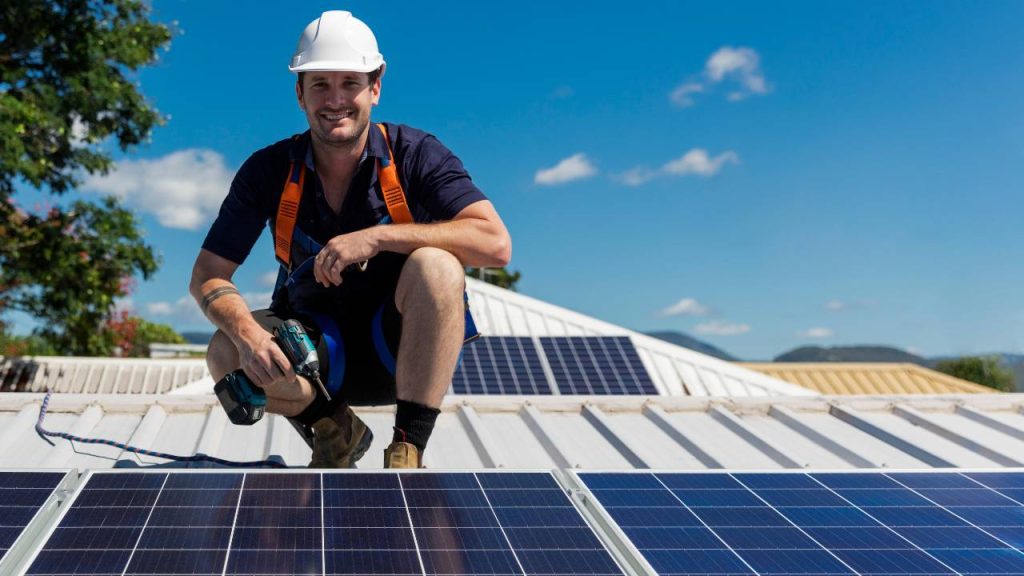
Plug-in panels are often small, producing only around 200 to 300 watts of electricity. That’s enough to power a lamp or charge your phone, but it won’t make a noticeable dent in your electricity bill. On cloudy days, which are common in Ireland, their output drops even further.
They also can’t be integrated into a battery system or monitored with a smart energy app like a proper solar system. This means you don’t get full control over how your energy is used, stored, or exported.
3. Poor Value for Money
While they’re cheaper to buy upfront, plug-in solar panels don’t offer good value over time. If they break, you’ll likely spend a lot on repairs or full replacements. And because their output is so low, it could take more than a decade to see any financial return, if ever.
Compared to professionally installed solar systems that last over 25 years and reduce your bills significantly, plug-in systems simply don’t hold up.
What Are Better Alternatives?
If you’re considering solar energy, it’s important to think long term. Here are two much better options for most homes in Ireland:
Professional Solar Panel Installation
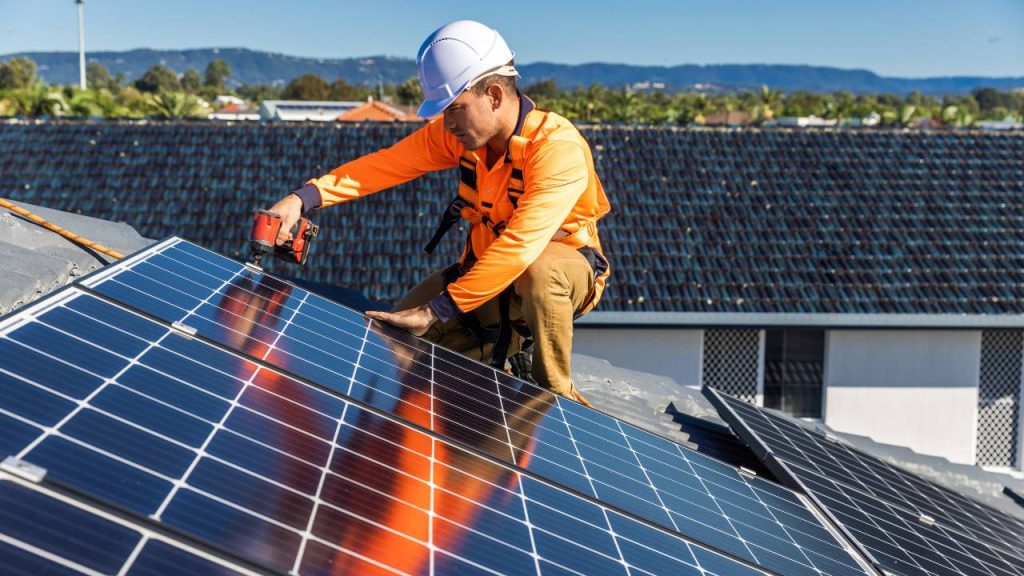
The best and safest route is to have a proper solar system installed by certified professionals. Yes, the upfront cost is higher, but it comes with a lot of benefits:
- The system is wired safely and legally.
- It qualifies for government support schemes like SEAI grants.
- It can be combined with a home battery or smart meter.
- It increases your home’s value.
- It offers proper warranties and support.
- And most importantly, it saves you serious money on electricity over time.
At My Power provides trusted, expert installation services to help you get the most out of your solar investment, safely and efficiently.
A typical home solar setup pays for itself in 7 to 10 years. After that, you’re generating free power for up to 15 more years.
Portable Solar Generators
If your goal is just to have a small backup system or something to use while camping or in the garden, a portable solar generator is a better and safer option than plug-in panels.
These systems are tidy, compact, and user-friendly. You can connect foldable solar panels to them during the day to charge the built-in battery. Then use the stored power in the evening or during a power cut. Some even come with wheels and built-in panels, making them easy to move around.
They range in size, from powering lights and phones on a camping trip to running fridges, laptops, or even parts of your home during outages. They’re also far less risky than plugging solar panels straight into a socket.
Conclusion!
Plug-in solar panels may seem like an easy solution, but they come with serious downsides. From safety risks and legal concerns to poor performance and limited savings, they are simply not worth the risk, especially in Ireland.
That’s why it’s important to understand why you should never invest in “Plug-In” solar panels, especially when long-term safety, compliance, and value are at stake.
However, if you are thinking about switching to solar, it is much wiser to choose a proper system that is safe, reliable, and built to last. My Power is here to help you make the right choice. Contact us today for expert advice, personalised support, and safer, smarter solar solutions you can trust for years to come.
FAQ’s
1. Why are plug-in solar panels unsafe to use at home?
Plug-in solar panels often use exposed wires and regular sockets, which can cause electric shocks or trip hazards. They also don’t have proper circuit protection, which can lead to overheating or even fires if the system is overloaded.
2. Why are plug-in solar panels inefficient?
Plug-in panels are usually low-powered and not designed to supply significant energy. They can’t be connected to batteries or smart energy systems, which means you have limited control over how the electricity is used or saved.
3. Are plug-in solar panels professionally installed?
Most plug-in panels are not installed by certified professionals. They are often DIY setups, which means they may not follow proper safety practices or meet the quality standards of full solar installations.
4. Are plug-in solar panels a good long-term investment?
No. They might cost less to buy, but they don’t last as long or save much money. If something goes wrong, repairs can be expensive, and the panels may need replacing sooner than expected.
5. What can I use instead of plug-in solar panels?
A professionally installed solar system is the best alternative. It’s safe, efficient, and fully supported, with proper wiring, warranties, and better long-term savings. You may also qualify for government grants.
6. Can portable solar generators replace plug-in panels?
Yes. If you need power for camping, gardens, or emergencies, portable solar generators are a safer and more reliable choice. They store energy in batteries and don’t need to be wired into your home.

